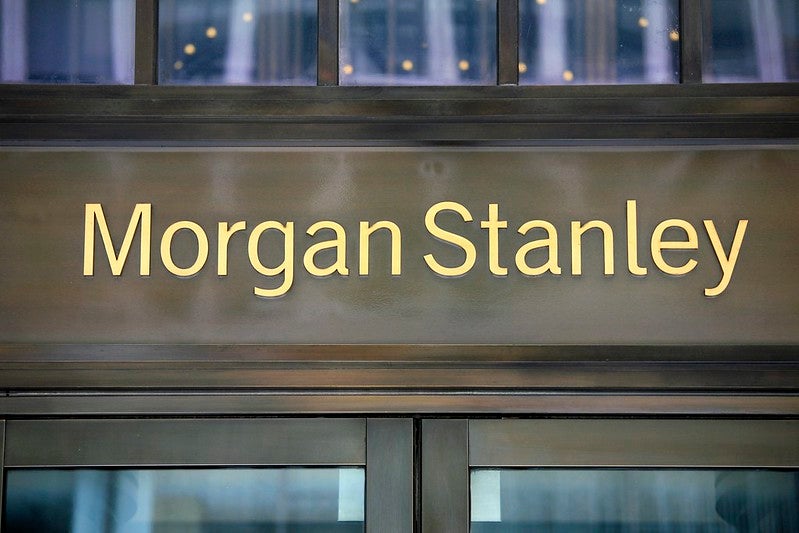Africa is likely to be the
slowest-growing region measured by wealth generation in the coming
years, but there are some pockets of the continent which are being
targeted by private banks. Morocco, where BNP Paribas has started
private banking services, is one country seen to have such
potential. Rodrigo Amaral
reports.
BNP Paribas has set its sights on Morocco to
boost its private banking presence in the growing markets of North
Africa. The French bank has announced the creation of a new private
banking unit at its Moroccan subsidiary, BMCI, in order to tap a
market that, although in its infancy, promises to provide
considerable action in the future.
In recent years, Morocco has been going
through a process of economic liberalisation that has managed to
attract foreign investments and to accelerate growth. An increasing
number of multinational companies have set up shop in the North
African country to take advantage of incentives to develop sectors
like financial services and call centres. As a result, the number
of wealthy Moroccans is perceived to be on the rise too.
“Morocco has an interesting potential for the
creation of millionaires today,” says Meryem Kabbaj, the head of
BMCI-BNP Paribas Private Banking. “In the past three or four years
we’ve been observing the emergence of wealthy Moroccans whose needs
are much different from the service that banks offered them
before.”
 A study by the
A study by the
Casablanca-based subsidiary of Sia Conseil, a French consultancy,
notes that some other factors are also driving the development of
private banking in the country. For instance, Moroccans are making
more use of banking services, and the offer of investment products
is gaining in sophistication.
How well do you really know your competitors?
Access the most comprehensive Company Profiles on the market, powered by GlobalData. Save hours of research. Gain competitive edge.

Thank you!
Your download email will arrive shortly
Not ready to buy yet? Download a free sample
We are confident about the unique quality of our Company Profiles. However, we want you to make the most beneficial decision for your business, so we offer a free sample that you can download by submitting the below form
By GlobalData“Morocco’s economy has shown dynamism and is
growing,” says Sia Conseil’s Matthias Poirier. “Lots of foreign
investments from the United Arab Emirates, the United States and
Europe are entering the country, and big companies have managed to
keep the money in Morocco. And the financial markets are becoming
better structured. The private banking market is still embryonic
here, but we believe it could grow by 4 percent to 6 percent a year
in the next five or six years.”
BMCI-BNP Paribas has decided to make its
presence felt in the market by launching its dedicated private
banking service that relies on the strength of the bank’s retail
banking network.
With over 250 branches spread around the
country, the bank has 50 year’s experience in the Moroccan market
and claims to be particularly strong in the provision of services
for Morocco’s companies.
“BMCI is a reference in corporate banking in
Morocco. The majority of big companies are our clients, and so are
many small and medium firms too. Therefore we are making a big
effort towards their owners and executives. From our contacts with
the business world, we’ve realised that we have in our retail
banking network several clients who want to receive a
differentiated service,” says Kabbaj.
“They are sophisticated clients with
particular needs in areas like strategic financial planning, the
transmission of wealth to future generations and so forth.”
Sophisticated services
For starters, the new private
banking unit will work with a lean 15-strong team, including
relationship managers, salespeople, marketing experts and
investments advisers, with offices in Casablanca and Rabat,
Morocco’s two wealthier cities, which host around 80 percent of all
potential clients, according to Kabbaj. Next year, however, could
see further expansion, as BMCI considers sending its private
bankers to other parts of the country.
Kabbaj notes that several wealthy clients from
outside the two main cities are already served by the retail
network, so an eventual expansion would also tap into this pool of
clients. As in other countries where BNP Paribas operates, the
private banking unit answers to both BNP Paribas’ Wealth Networks
in Paris and the top echelons of the local subsidiary – in this
case BMCI.
The Moroccan experience, according to Kabbaj,
will work as a laboratory for the spreading of BNP Wealth
Management across the North African region. An OECD study estimates
that the number of people with over $1 million of investable assets
is growing by 3 percent a year in the Middle East and North African
region, and the bank is looking at ways to capitalise on this
development.
“BNP Paribas has big ambitions in global
wealth management and one of the priorities is the development of
private banking in the context of domestic retail networks,” Kabbaj
points out. “That’s what we at BMCI are doing in Morocco and our
experience is a pilot for the development of private banking in
other countries in the region where the bank has a domestic retail
presence, like Egypt or Libya.”
BNP Paribas is not the only French bank with
ambitions in developing its presence in North Africa’s private
banking market. But, according to Sia Conseil, the strategies vary
from player to player.
The consultancy notes that SGMA, the Moroccan
unit of Société Générale, opted to set up a dedicated private bank
that is independent from the retail network in a quest to increase
its exclusive status. Crédit Agricole’s Crédit du Maroc, for its
part, relies on the retail network – but also in a team of
financial advisors who answer directly to regional directors of the
bank.
In any case, the consultancy believes that the
tactic that seems to be bearing the best results in the Moroccan
market is the establishment of VIP agencies that provide
differentiated services to wealthy clients, either recruited from
the retail network or lured from elsewhere. And a new development
has been the emergence of small firms that provide financial advice
to the wealthy, says Poirier.







